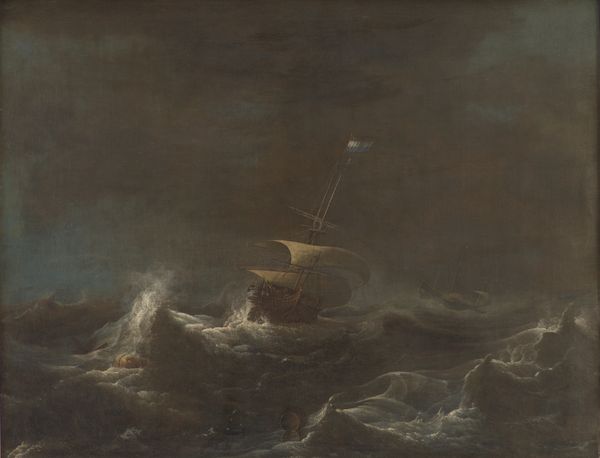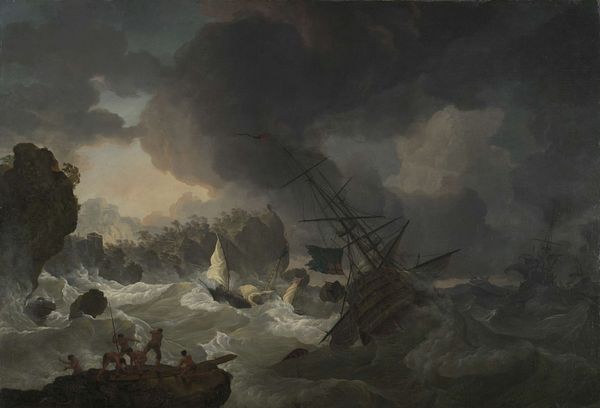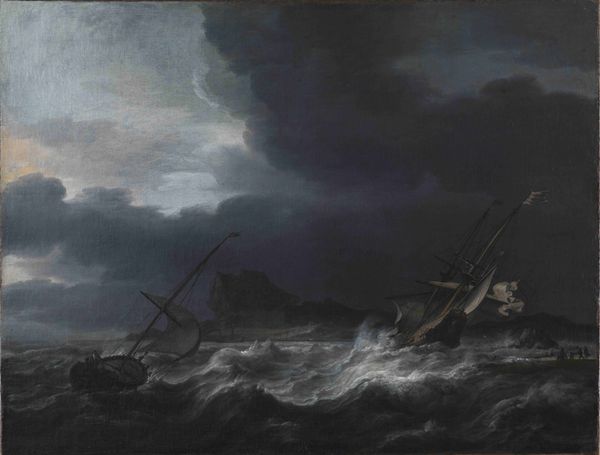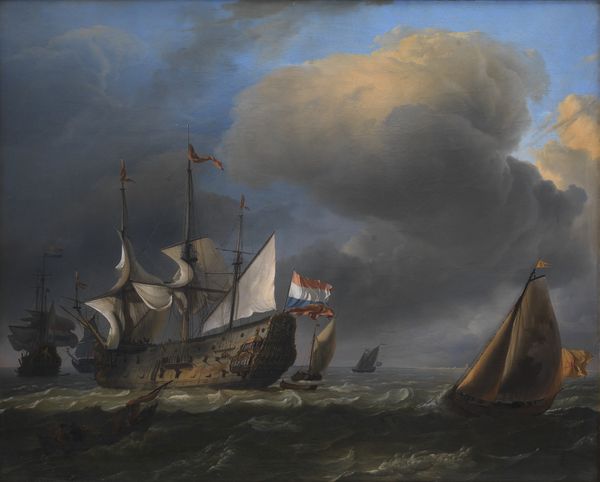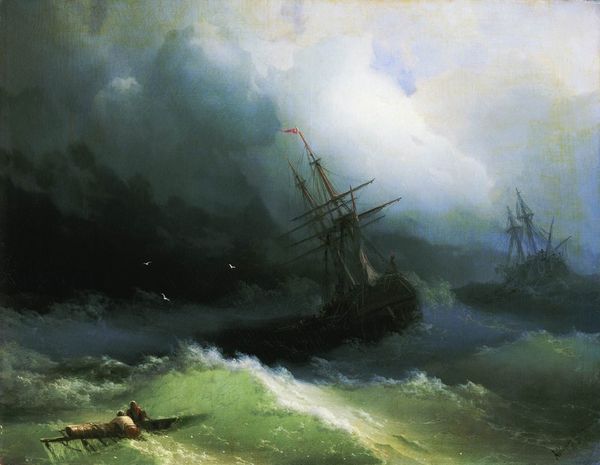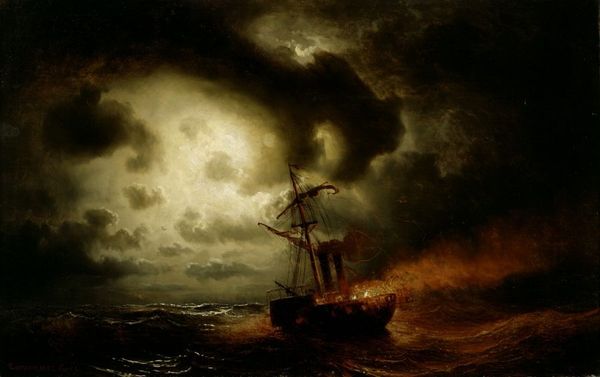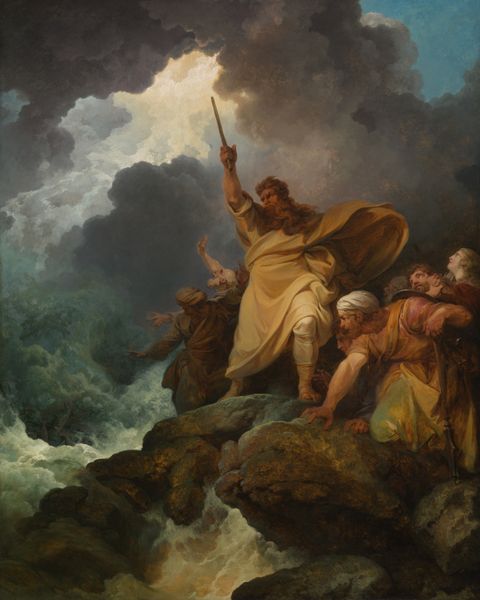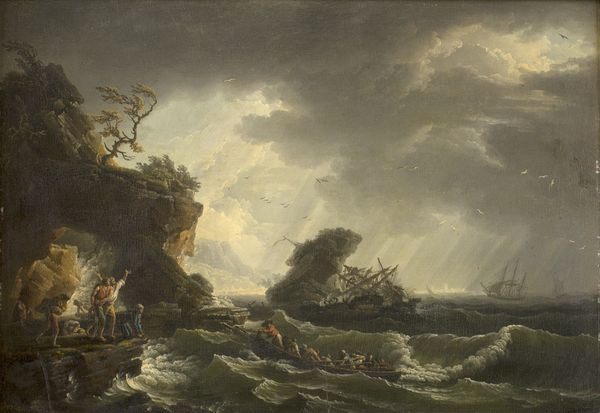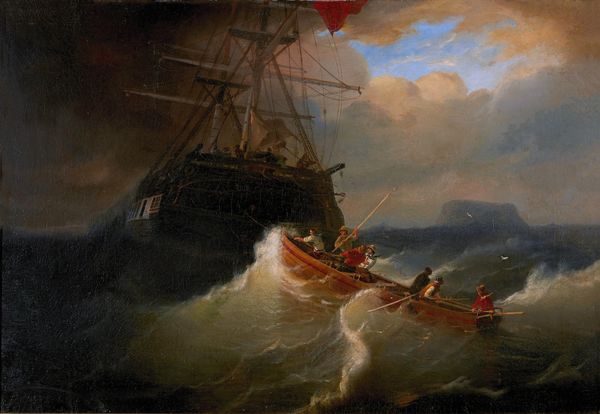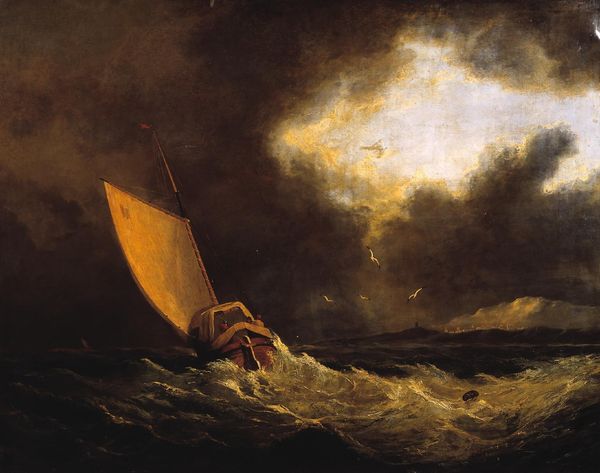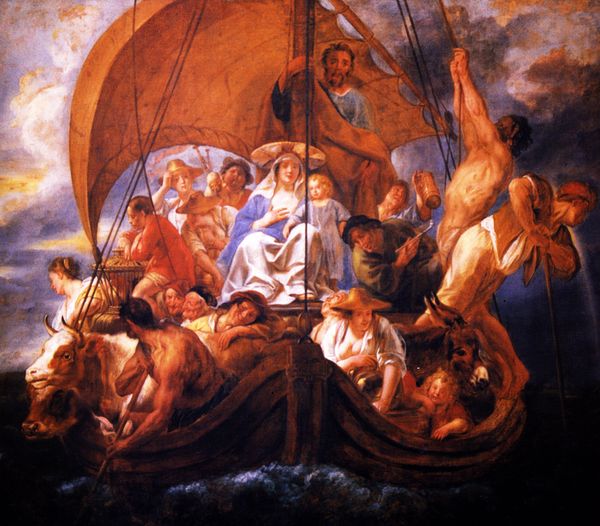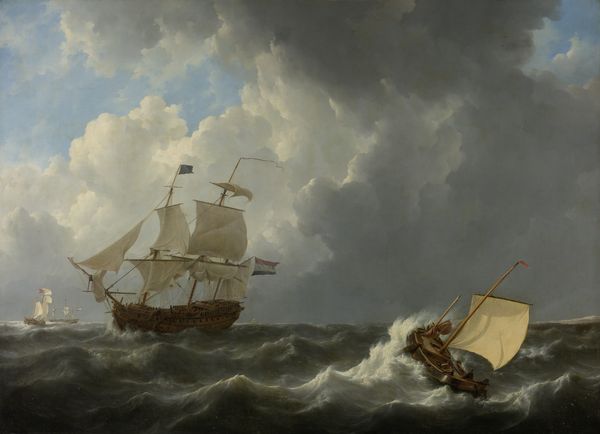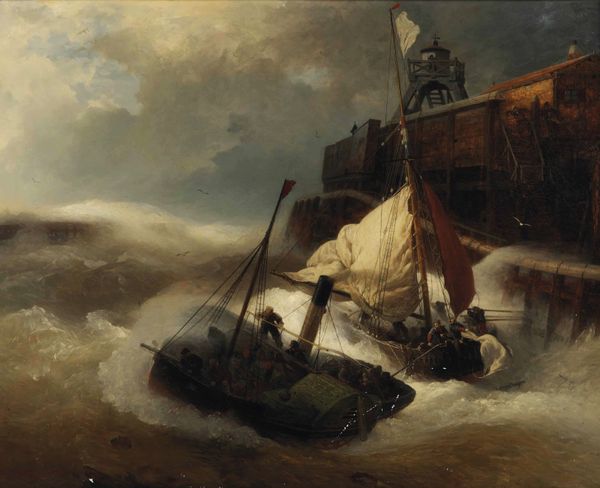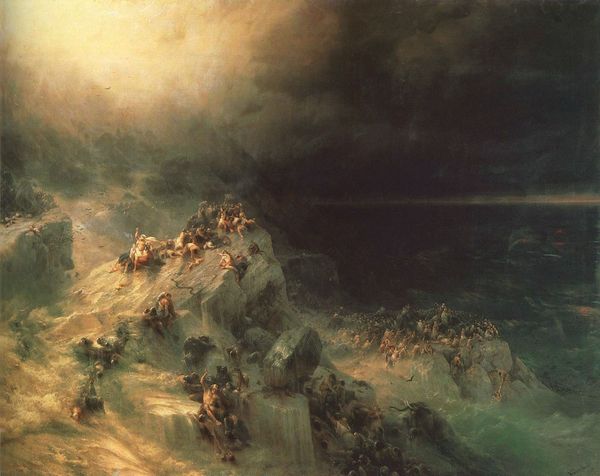
painting, oil-paint
#
narrative-art
#
baroque
#
dutch-golden-age
#
painting
#
oil-paint
#
landscape
#
figuration
#
form
#
chiaroscuro
#
line
#
realism
Dimensions: 160 x 127 cm
Copyright: Public domain
Editor: This is "The Storm on the Sea of Galilee," painted by Rembrandt van Rijn in 1633, using oil paint. It's a very dramatic scene, with the tiny boat being tossed around. What strikes me is how physical the struggle seems; you can almost feel the strain. What do you make of it? Curator: Precisely, consider the materiality of the scene; the sheer volume of oil paint Rembrandt used to depict the churning water speaks to a particular kind of labor and access. Think about where Rembrandt sourced his pigments, and who controlled those trade routes. This wasn't just artistic inspiration; it was also a display of economic power made possible through maritime trade itself, ironic given the subject. Editor: So the painting's material existence, even down to the pigments, ties into the larger context of maritime power? Curator: Exactly! Furthermore, consider the canvas itself. Its size and quality are indicative of Rembrandt's status and patronage networks. He’s not just illustrating a biblical story; he's producing a commodity for a specific market – affluent Dutch society fascinated by seafaring narratives. This piece navigates both the spiritual and the material realms. Do you see any evidence of the "sweat" of the artist through careful examination of the materials? Editor: Looking closer, you can really see the individual brushstrokes, especially in the waves, a physicality to the act of painting that reflects the physical struggle depicted. I hadn’t considered how intertwined the economic and artistic production were! Curator: The "how" and "why" of making art are deeply connected to social and material conditions. Appreciating these conditions is vital for the modern-day understanding of old masterpieces. Editor: It makes me see how seemingly simple artistic choices are deeply embedded in complex systems of labor and exchange!
